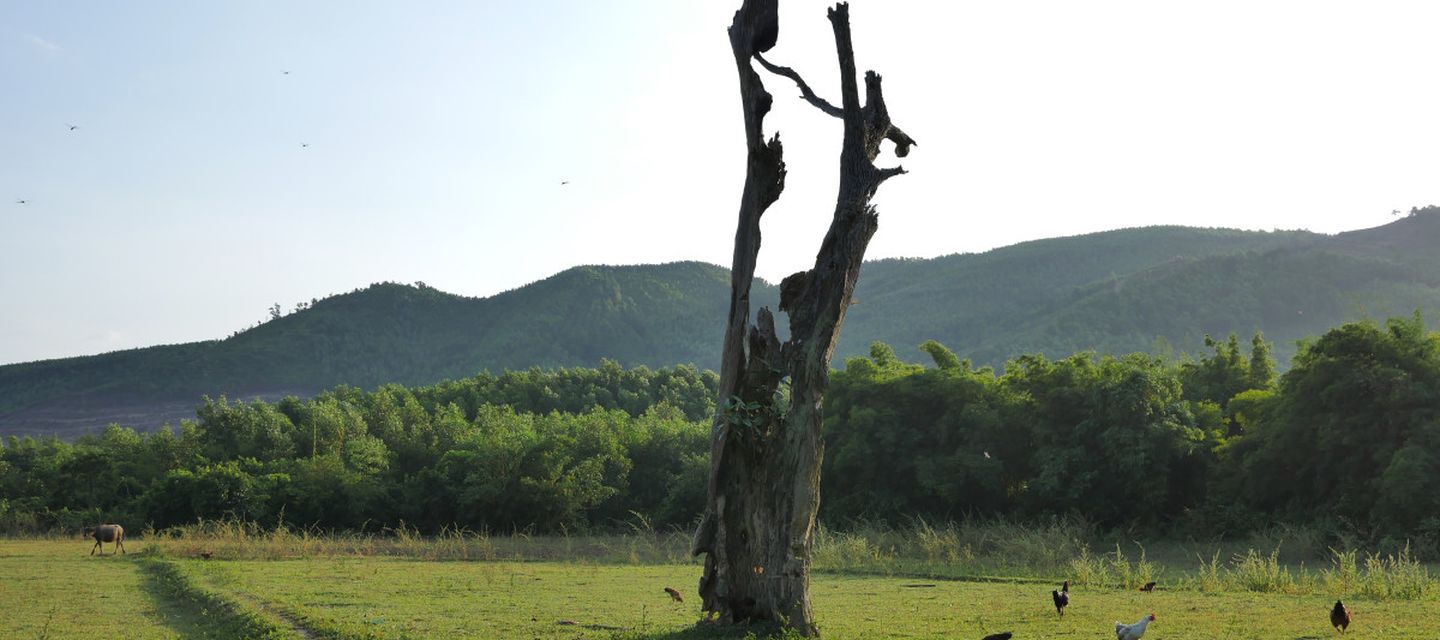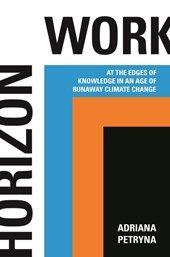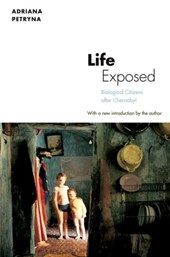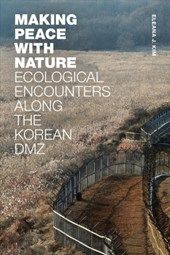
War Pollution and the Environment
Across the globe, military action and warfare have caused detrimental social, environmental, and multi-species harm. How does war pollution, particularly resulted from explosives and chemical warfare, continue to impact humans, other species, and their ecosystems? How do local and international efforts to address these legacies intersect with our heightened concerns over climate change? Bringing together scholars who research different socio-political contexts, this roundtable is aimed at facilitating a comparative discussion of these questions.
Focusing on the ‘military-industrial complex’ and its entanglements with our contemporary world, the roundtable attends to the environmental damage, caused by war, on the lives of all species in the context of accelerating climate change. The speakers will explore how the ongoing presence of military waste, including landmines and chemicals, radically transforms the environment and the very conditions of livability for those who dwell in such spaces many years after the active conflicts have concluded. Through historical and ethnographic case studies, the participants examine how war pollution creates discrimination and precarity, but also unexpected forms of cohabitation and value creation.
About the speakers
Adriana Petryna is Professor of Anthropology and director of the joint MD-PhD Program in Anthropology at the University of Pennsylvania in Philadelphia. In her research and writing on nuclear aftermaths, biomedicine, and the climate emergency, she explores diversity in the socio-political natures of science, how populations are enrolled in experimental knowledge-productions, and what becomes of ethics and citizenship in that process. In addition to her co-edited volumes on critical global health, she is the author of the award-winning books, Life Exposed: Biological Citizens after Chernobyl (Princeton University Press 2002); When Experiments Travel: Clinical Trials and the Global Search for Human Subjects (Princeton University Press 2009); and Horizon Work: At the Edges of Knowledge in an Age of Runaway Climate Change (Princeton University Press 2022).
Eleana Kim is a sociocultural anthropologist with expertise in kinship, migration, war, and militarized ecologies. She is Professor of Anthropology and Asian American Studies at University of California Irvine, and the current president of the Society for Cultural Anthropology. She is the author of Making Peace with Nature: Ecological Encounters along the Korean DMZ (Duke University Press 2022), Adopted Territory: Transnational Korean Adoptees and the Politics of Belonging (Duke University Press 2010), and co-editor with David Fedman and Albert Park of Forces of Nature: New Perspectives on Korean Environments (Cornell University Press 2023).
Tam Ngo is a senior researcher at the NIOD where she oversees the building up of a research line on social healing, environmental reparation, and reconciliation politics through the interactive lens of religion and science. As a social anthropologist she crafts her theoretical framework on a wild range of ethnographic settings from, on the one hand postwar Vietnam, Vietnamese diasporas in Europe, Hmong refugees in the US and Vietnamese Chinese refugees in China, to, on the other hand, different circles of DNA forensic experts working on human identification and genetic and ecological destruction of the Vietnam War. She is the author of The New Way: Protestantism and the Hmong in Vietnam (University of Washington Press 2016).
Darcie DeAngelo is an Assistant Professor in the Department of Anthropology at the University of Oklahoma. As an environmental and medical anthropologist trained in visual methods, her work engages with human-nonhuman relations such as the love between landmine detection rats and their handlers, the excitement of dogs and humans as they hunt for rats in cities, and the kinship of humans and their sourdough starters. She is currently the Annie Clark Tanner Fellow in Environmental Humanities at the University of Utah where she is writing her second book, For the Love of Rats, which explores the surprising relationships between rats and humans across time and space. Her first book is forthcoming with the University of California Press Atelier Series and focuses on landmine detection rats and their handlers in Cambodia. She also edits the journal, Visual Anthropology Review.
Sarah Wagner is a Professor of Anthropology at the George Washington University. A member of the research team, “Bones of Contention” (based at the NIOD), she is author of What Remains: Bringing America’s Missing Home from the Vietnam War (Harvard University Press 2019), winner of the 2020 Victor Turner Prize for Ethnographic Writing, and To Know Where He Lies: DNA Technology and the Search for Srebrenica’s Missing (University of California Press 2008). Her research focuses on post-conflict societies, memory, national identity, and forensic science applied in the wake of war, and, most recently, on COVID-19 death and mourning.
Dat Nguyen is a sociocultural anthropologist and a postdoctoral researcher at the NIOD Institute for War, Holocaust and Genocide Studies. His research focuses on the anthropology of religion, care and citizenship, war legacies and trauma in Vietnam. He has published on Vietnamese Buddhism, youth culture, and mental health in Journal of Vietnamese Studies and Journal of Global Buddhism. At the NIOD, his research on the commemoration of the war dead and the transgenerational transmission of war memory and trauma in southern Vietnam is forthcoming in Human Remains and Violence: An Interdisciplinary Journal and War & Society (with Tam Ngo). He is also contributing to the development of NIOD’s research program on the environment and violence, particularly through his research on Agent Orange and disability care in Vietnam.
Hinke Piersma is a historian and studied history at the University of Amsterdam. Since 1998 she has worked at the research department of the NIOD (since 2012 as senior researcher). In 2005 she completed her dissertation about four German war criminals who, from their trials in 1948-1949 until the release of the last two in 1989, were the subject of an intense public and political debate in Dutch society. For a couple of years she was team leader of the Societal Research Programme at NIOD (research that is commissioned and funded public, semi-public and private institutions). Currently she is head of the Research Department. She is interested in themes concerning the aftermath of the Second World War, i.e. spoliation and restitution on property rights of the persecuted Jews, and also involved in discussions on notions of Dutch resistance. At the moment she is writing a biography about a Jewish lawyer who was part of a group that had special protection of the Dutch administration during the German occupation of the Netherlands.
Ken MacLean is a cultural anthropologist at the Strassler Center for Holocaust and Genocide Studies, Clark University. His research focuses on the possibilities and limits of human rights documentation as a mode of truth-seeking. MacLean’s most recent book, Crimes in Archival Form: Human Rights, Fact Production, and Myanmar (University of California Press, 2022), is short-listed for the 2023 ICAS book prize.



:rgb(-15)

:rgb(-25)

:rgb(8)
